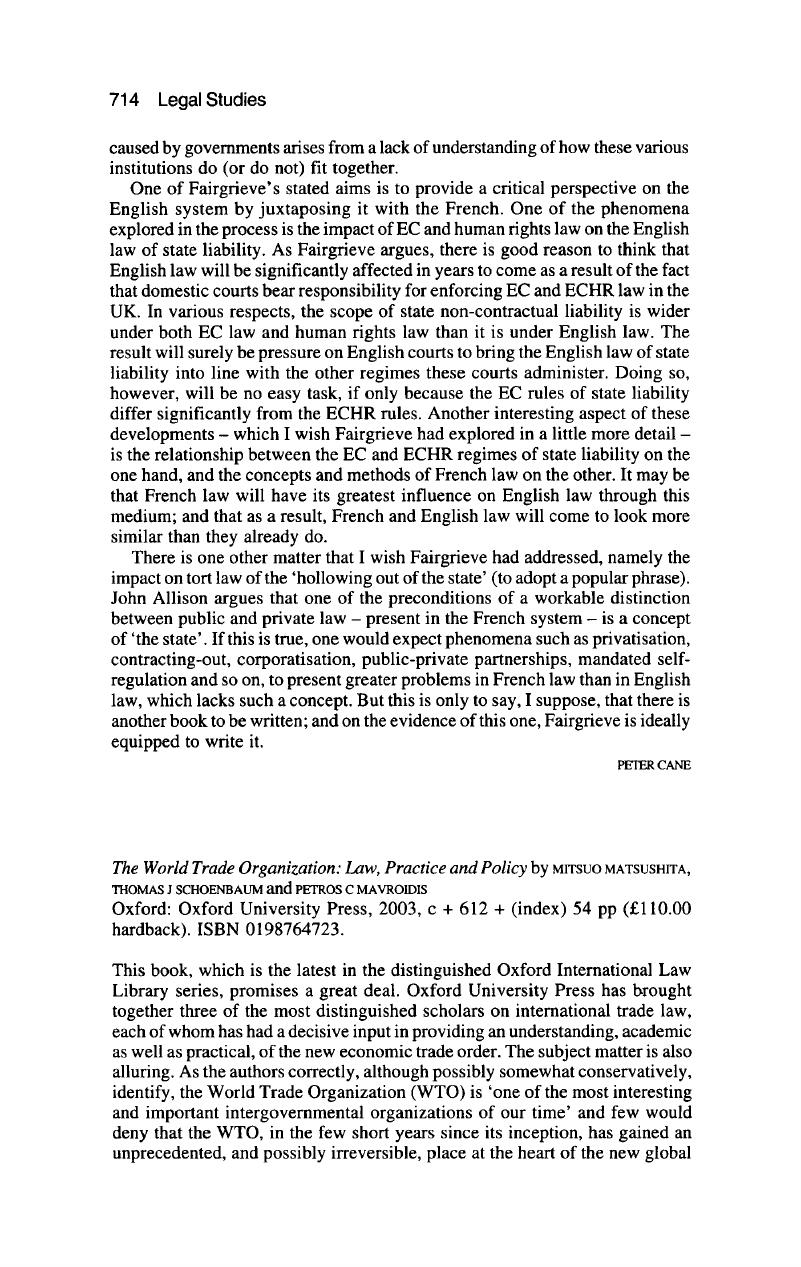No CrossRef data available.
Article contents
The World Trade Organization: Law, Practice and Policy by Mitsuo Matsushita, Thomas J Schoenbaum and Petros C Mavroidis. Oxford: Oxford University Press, 2003, c + 612 + (index) 54 pp (£110.00 hardback). ISBN 0198764723.
Published online by Cambridge University Press: 02 January 2018
Abstract

- Type
- Book Review
- Information
- Copyright
- Copyright © Society of Legal Scholars 2003
References
1 One only has to look at the comments made by WTO representatives at any number of meetings and conferences on the extent of the obligation contained in the Agreement on Trade Related Aspects of Intellectual Property (TRIPS) to provide protection for biotechnological inventions to see evidence of a non-neutral position on the interpretation of Arts 27–31 and, more specifically, of the consequences of non-compliance even where the member state concerned has been citing justification on the grounds of the protection of public health and the environment.
2 In brief these permit the US to take’ unilateral action to retaliate against any perceived unfair trade practices either allowed or undertaken by other nations' (ch 2,4.3).
3 Eg ch 16 discusses intellectual property and much of the discussion centres on issues surrounding access to food and medicines within developing countries. In many respects this is understandable, as the question of the impact of the TRIPS Agreement on health and basic food produce has proved one of the most politically sensitive issues at the WTO, but the result of this focus is to ignore other equally problematic issues which, though not as high-profile, are nonetheless of economic significance. These include geographical indicators, the Internet and protection of copyright/freedom of speech and the registration of domain names. It is also odd that whilst the authors do focus primarily access to food and medicines in a developing country context, they do so in the context of a relatively full discussion of the relationship between TRIPS and the Convention on Biological Diversity but with only scant (and then not wholly accurate) reference to sui genens plant variety protection.


